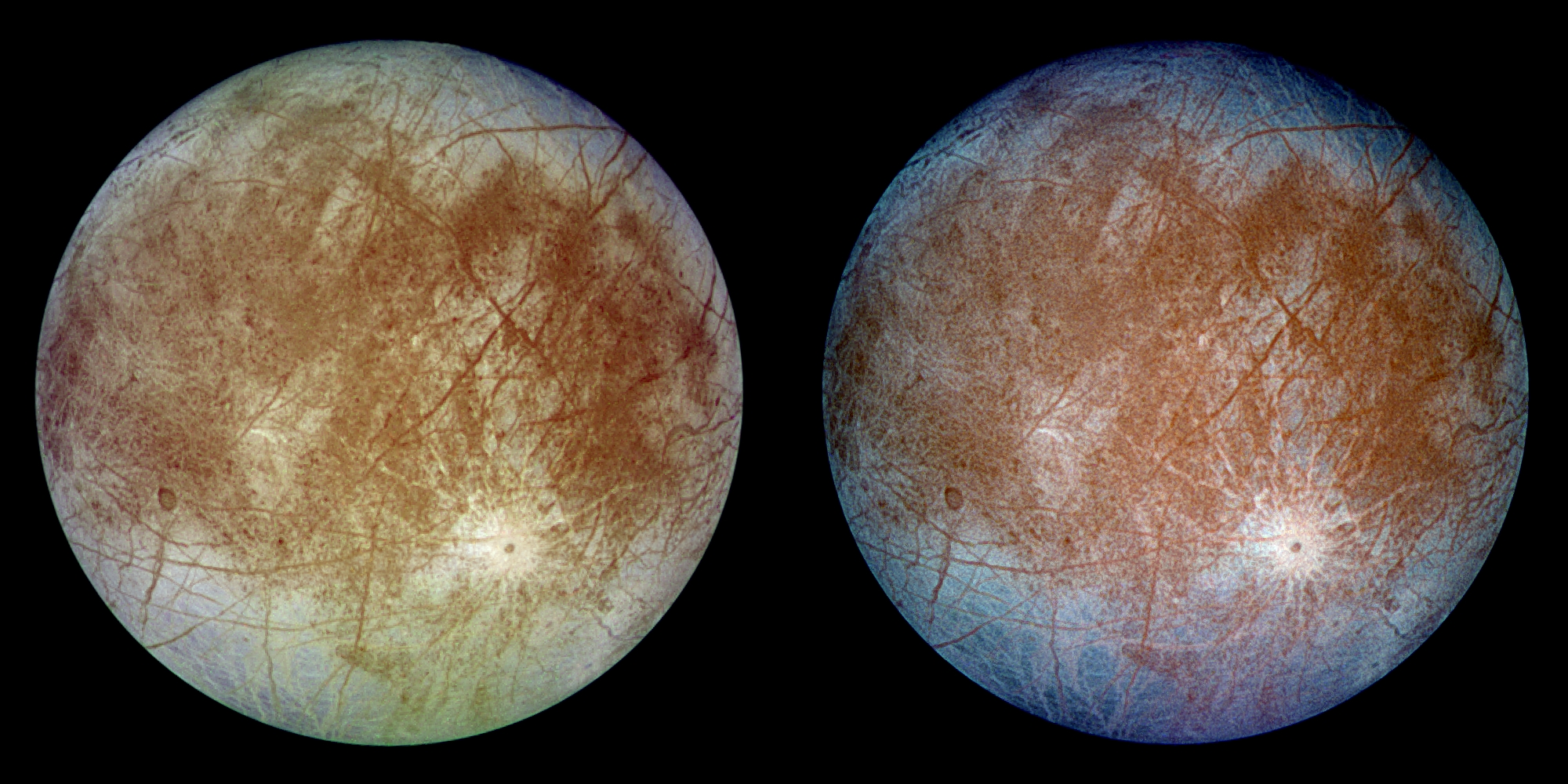Exploring other worlds has always been a goal that government agencies like NASA were meant for, but technological and resource limitations have always been huge obstacles. Now, the American space agency is looking to explore planets that have huge water regions in order to search for signs of alien life. After all, where there is water, there is bound to be some form of organisms.
The plan was first presented during the "Planetary Science Vision 2050 Workshop" that NASA recently hosted in Washington, D.C. headquarters, Phys.org reports. The workshop is supposed to be an opportunity to connect with the international community where the agency will present its long-term plans and where experts will make their proposals.
Among the presentations include the two proposals to explore the oceans of Europa, one of Jupiter’s moons and others. Unfortunately for aspiring astronauts, NASA will not likely be sending actual ships to these moons anytime soon. For the initial missions, probes will be sent to collect data and see exactly what the agency would be dealing with.
The Europa mission was discussed during the presentation with the title "Exploration Pathways for Europa after initial In-Situ Analyses for Biosignatures." During the presentation, data about the moon was shared in order to explain why the scientists believe this is even achievable, Futurism reports. According to Deputy Chief Scientist for solar system Exploration Kevin Peter Hand, if evidence of life is found on Europa, visiting the moon is going to be a priority for NASA.
“Were biosignatures to be found in the surface material, direct access to, and exploration of, Europa’s ocean and liquid water environments would be a high priority goal for the astrobiological investigation of our solar system,” Hand explained. “Europa’s ocean would harbor the potential for the study of an extant ecosystem, likely representing a second, independent origin of life in our own solar system.”



 OpenAI Expands Enterprise AI Strategy With Major Hiring Push Ahead of New Business Offering
OpenAI Expands Enterprise AI Strategy With Major Hiring Push Ahead of New Business Offering  SpaceX Pushes for Early Stock Index Inclusion Ahead of Potential Record-Breaking IPO
SpaceX Pushes for Early Stock Index Inclusion Ahead of Potential Record-Breaking IPO  Tencent Shares Slide After WeChat Restricts YuanBao AI Promotional Links
Tencent Shares Slide After WeChat Restricts YuanBao AI Promotional Links  Amazon Stock Rebounds After Earnings as $200B Capex Plan Sparks AI Spending Debate
Amazon Stock Rebounds After Earnings as $200B Capex Plan Sparks AI Spending Debate  AMD Shares Slide Despite Earnings Beat as Cautious Revenue Outlook Weighs on Stock
AMD Shares Slide Despite Earnings Beat as Cautious Revenue Outlook Weighs on Stock  Jensen Huang Urges Taiwan Suppliers to Boost AI Chip Production Amid Surging Demand
Jensen Huang Urges Taiwan Suppliers to Boost AI Chip Production Amid Surging Demand  Nvidia Nears $20 Billion OpenAI Investment as AI Funding Race Intensifies
Nvidia Nears $20 Billion OpenAI Investment as AI Funding Race Intensifies  Nvidia, ByteDance, and the U.S.-China AI Chip Standoff Over H200 Exports
Nvidia, ByteDance, and the U.S.-China AI Chip Standoff Over H200 Exports  Nvidia CEO Jensen Huang Says AI Investment Boom Is Just Beginning as NVDA Shares Surge
Nvidia CEO Jensen Huang Says AI Investment Boom Is Just Beginning as NVDA Shares Surge  Nvidia Confirms Major OpenAI Investment Amid AI Funding Race
Nvidia Confirms Major OpenAI Investment Amid AI Funding Race  Sony Q3 Profit Jumps on Gaming and Image Sensors, Full-Year Outlook Raised
Sony Q3 Profit Jumps on Gaming and Image Sensors, Full-Year Outlook Raised  Elon Musk’s Empire: SpaceX, Tesla, and xAI Merger Talks Spark Investor Debate
Elon Musk’s Empire: SpaceX, Tesla, and xAI Merger Talks Spark Investor Debate  Nintendo Shares Slide After Earnings Miss Raises Switch 2 Margin Concerns
Nintendo Shares Slide After Earnings Miss Raises Switch 2 Margin Concerns  Baidu Approves $5 Billion Share Buyback and Plans First-Ever Dividend in 2026
Baidu Approves $5 Billion Share Buyback and Plans First-Ever Dividend in 2026  Palantir Stock Jumps After Strong Q4 Earnings Beat and Upbeat 2026 Revenue Forecast
Palantir Stock Jumps After Strong Q4 Earnings Beat and Upbeat 2026 Revenue Forecast  Instagram Outage Disrupts Thousands of U.S. Users
Instagram Outage Disrupts Thousands of U.S. Users 
































